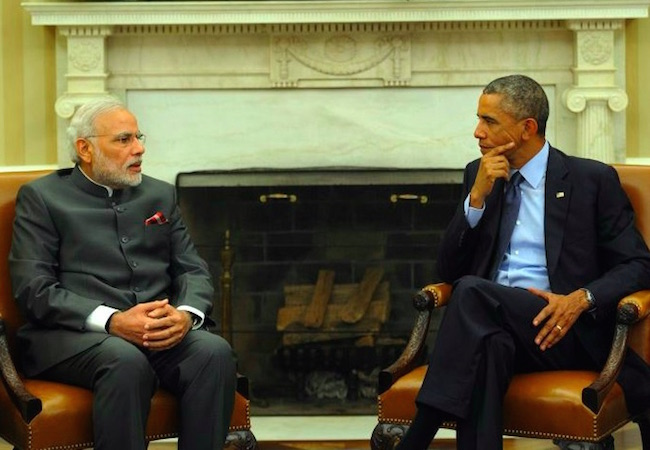
By Mobeen Tariq
United States President Barack Obama will visit India from (25-27 January). But the prevalent news about India-US bilateral relations is that after frantic efforts to remove glitches in the India-US civilian nuclear agreement and make it fully operational, the two sides have hit a dead-end and their respective positions would remain as deadlocked as ever during Obama’s visit as well.
United States signed a nuclear deal with India in 2008 in a hope to sell nuclear power reactors and fuel and resuscitate their ailing nuclear industry that has not sold many reactors lately. While we have no transparency on how much fuel India is buying from the U.S. as a consequence of this illegitimate nuclear deal, it is absolutely clear that selling a reactor to them will remain a wild goose chase. In reaching this deal the U.S. violated all nonproliferation norms and created an exceptional exception for New Delhi in a hope to make big bucks but the aspirations plunged.
The India-US stalemate on the civilian nuclear agreement is ostensibly more because of the flagging rights issue upstretched by the Americans to which the Indians are dead opposed. The two sides tried their best to resolve sticky issues in operationalizing the nuclear deal and extended their talks in London by one more day. However, at the end of the extended day both the sides’ position on the flagging rights issue remained completely opposed.
Washington wants India on to the flagging and tracking rights so that relevant United States authorities know the locations of the US-supplied nuclear materials at any given time without which the US Nuclear Regulatory Commission will not be able to issue the licenses needed to go forward with nuclear reactor sales to India.
On the other hand New Delhi looks at the flagging and tracking issues as being highly intrusive and has made it clear to United States that it will never agree, deal or no deal. India’s argument is that all transaction of all nuclear materials under the Indo-US agreement would be covered by the IAEA safeguards and the assurance of International Atomic Energy Agency (IAEA) should be enough for the Americans.
The same Issue has been raised by Canada also in the recent past. But we all know the Indian proliferation record. India’s first nuclear test was of a device derived partially from Canadian and U.S. exports designated for peaceful purposes. That test spurred the United States and several other countries to create the Nuclear Suppliers Group to more severely restrict global nuclear trade. Moreover many analysts also allege that India’s procurement system for its own nuclear programs could leak or reveal nuclear know-how to other states or non-state actors.
India has said that it will never agree to such intrusive arrangements and concession with clandestineness and autonomy of the Indian nuclear programme by giving United States flagging rights to track nuclear materials. On the other hand United States have told that in no uncertain terms that they will have to dilute their stand to find a conciliation on this issue. So It is vibrant that the two sides will not be able to resolve all outstanding civil nuclear issues when Obama and Prime Minister Narendra Modi hold talks on 25 January.




